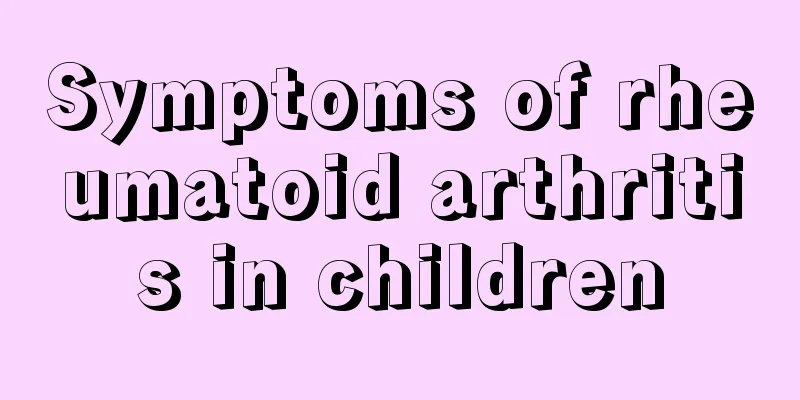What to do if your three-year-old baby wets the bed

|
It is normal for a three-year-old baby to wet the bed. This is because children aged 1 to 3 have limited language comprehension ability, or they drink a lot of water or eat fruit before going to bed, and they are not held up to urinate regularly at night. If you want to improve it effectively, parents can remind their children to get up and urinate at a fixed time at night. 1. Children aged 1 to 3 years old have limited ability to understand language, so behavior-based education is generally used, that is, demonstrating actions for the baby to imitate. For example, adults can take their children to the toilet and let the children learn to imitate. When parents find that their children have wet their pants, they should not change them immediately, because this can easily mislead the children into thinking that this is the solution to the problem of defecation. The child should be taken to the potty and pointed to the potty and told how to do it. 2. Generally speaking, it is normal for children under 3 years old to wet the bed, so you can take some measures during this period to try to avoid wetting the bed, but you cannot deliberately ask them not to wet the bed. For example, before going to bed, do not let your baby drink a lot of water or eat too much fruit; let your baby urinate 1-2 times regularly at night. If you use diapers, you should check the wetness of the diapers at regular intervals. After the child is 3 years old, parents can gradually postpone the time of each urination from the original fixed time, first half an hour, then 1 hour, and 2 hours. This can slowly train the baby's bladder's urine storage capacity, allowing them to gradually change and not get out of bed to urinate until dawn. Of course, if your child still wets the bed after the age of five or six, you should go to the hospital for a check-up. 3. Give full play to the essence of traditional Chinese medicine treatment, through the combined effect of drugs, regulate the autonomic nervous function, balance the secretion of diuretic hormone and antidiuretic hormone, can effectively improve the symptoms of kidney deficiency and bladder deficiency and cold, improve the control of urinary sphincter, and fundamentally treat children's bedwetting and adult enuresis. At the same time, bedwetting rehabilitation powder completely eliminates various side effects brought by Western medicine treatment, and the effect is reliable and will not recur! |
<<: How to treat bedwetting in children
Recommend
Why is the newborn's urine yellow?
Many young parents have no experience in raising ...
Reasons why children can't sit still in class
Some children are prone to being active and unabl...
When does a baby's belly button fall off?
The birth of every new life will bring a lot of j...
How to correct canine teeth? Four things you need to know
Children with canine teeth are generally cute, an...
What are the ways to relieve toothache caused by tooth decay in children?
Children tend to eat sweet foods, such as candy, ...
What should I do if my 9-year-old child doesn’t like to eat?
Everyone tries their best to take care of, cheris...
2.5-year-old baby development standard
During the growth process of a child, parents are...
What to eat for children with mumps
Many people don't know much about mumps. The ...
How to care for children with fever and cold hands and feet
Cold hands and feet are a common symptom in child...
What should I do if my child has allergic rhinitis and often coughs?
Children with allergic rhinitis should try to avo...
What should I do if my child has red spots on the palms of his hands and they itch?
Children's skin is very delicate. If you don&...
What is the reason for children's eye mucus?
If children have a lot of eye mucus, parents shou...
What are the symptoms of diarrhea and dehydration in children?
Because children often eat randomly and their sto...
What are the manifestations of mental retardation in babies?
Every year, some mentally retarded babies are bor...
What should I do if my baby always has nasal mucus?
In daily life, many parents and friends will find...









